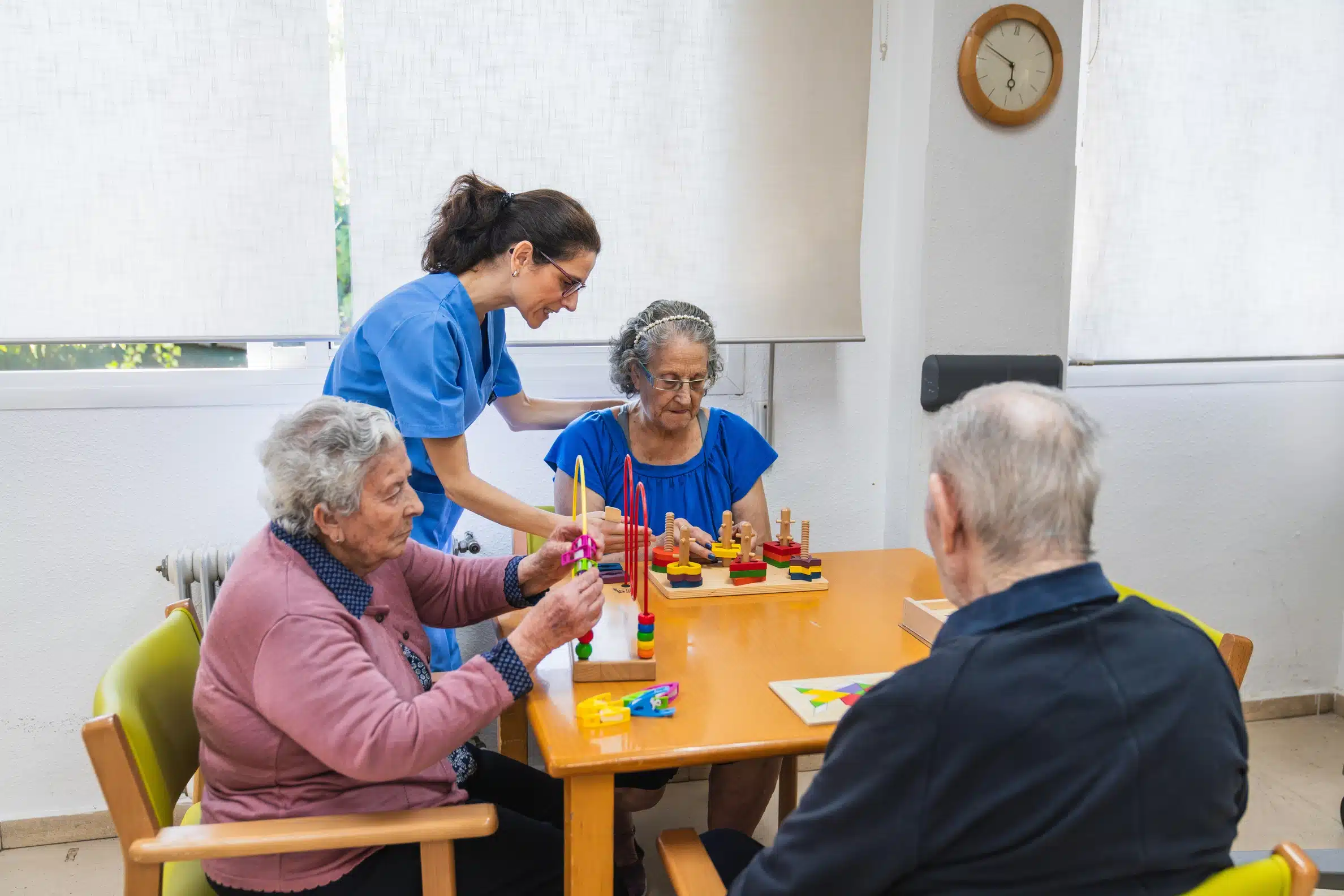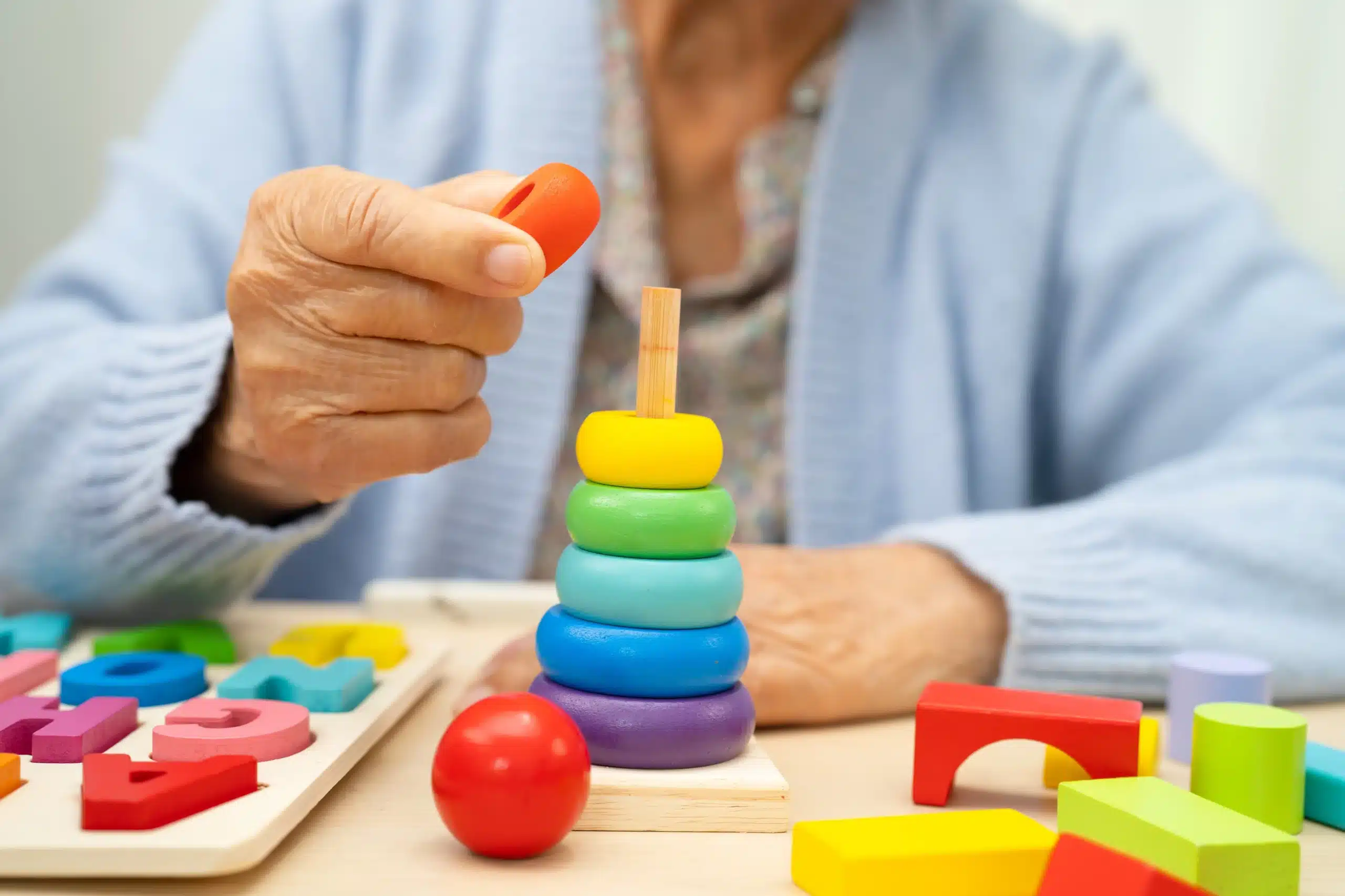Mental Stimulation at Every Stage of Life

Everyone wants to live well, feel engaged, and maintain a sense of purpose as we move through life. One of the most profound ways to achieve this is by nurturing the mind through mental stimulation. Whether you support yourself, care for a loved one, or seek ways to enrich daily living, understanding the value of mental stimulation can transform your approach to well-being.
Understanding why mental stimulation is essential and its many benefits is the first step to overcoming everyday challenges.

What is Mental Stimulation?
Mental stimulation is activities and experiences that challenge and engage the brain. These activities encourage cognitive growth and activity. This can include any activity. From solving puzzles, reading, learning a new skill, to engaging in meaningful conversations or exploring creative outlets like art and music. By keeping the mind active, mental stimulation helps to sharpen thinking, improve memory, and boost cognitive health. It’s not limited to complex tasks—everyday activities such as cooking a new recipe or playing a game can also provide valuable stimulation. Mental stimulation is essential at all stages of life and can support resilience, emotional well-being, and a sense of purpose.
Why Mental Stimulation Is Essential for Well-Being
Mental stimulation engages the mind in activities that challenge, entertain, and inspire thinking. As our bodies need movement and nourishment, our brains thrive on daily cognitive exercise. Without regular mental engagement, anyone can experience reduced cognitive sharpness, low mood, or feelings of isolation.
Many factors influence our access to stimulating experiences, from lifestyle and health conditions to a decline in cognitive health. Regardless of the situation, making time for mental engagement is vital to protecting well-being.
The Science Behind Neuroplasticity
Studies show that mentally stimulating activities build new neural connections and keep the brain flexible. This neuroplasticity helps preserve memory, attention, and problem-solving skills. Even simple routines, such as learning a song lyric or cracking a crossword, can positively change the brain’s structure and function.

The Many Benefits of Mental Stimulation
Mental stimulation is not only about sharpening memory. It supports every area of life:
Sharper Cognitive Function
Regularly challenging the mind sharpens memory, concentration, reasoning and decision-making. Adults who stay mentally active are less likely to experience cognitive decline as they age. Activities such as reading, puzzles, and board games can help maintain these skills.
Boosted Emotional Health
Mental engagement often brings a sense of achievement, purpose, and satisfaction. Creative hobbies, learning something new, or sharing a stimulating conversation can help reduce stress, anxiety, and a low mood. This is especially important for people facing isolation or loneliness. Hence, companionship has such an impact on mental well-being.
Stronger Social Interaction
Activities that stimulate the mind also create opportunities for connection. Group book clubs, art workshops, or classes in new skills keep the mind active and foster a sense of belonging. This form of social engagement is a pillar of emotional and mental health. It’s also a pillar of our commitment to engage older adults in the community by promoting community access.
Greater Resilience
Challenging the mind equips people to adapt to change and manage life’s setbacks. When faced with adversity, mentally stimulated individuals often report greater resilience and coping skills.
Simple Activities to Stimulate the Mind
There is no need for expensive resources or specialist knowledge to keep the brain engaged. Incorporating small, regular activities can have a tremendous impact. Here are some supportive, evidence-based activities for mental stimulation anyone can try:
Reading
Whether it’s novels, newspapers or short stories, regular reading exercises the brain’s comprehension and memory centres. Reading enriches vocabulary, improves focus, and offers a healthy escape from daily worries.
Puzzles and Games
Crosswords, sudoku, chess and jigsaw puzzles challenge logic and memory. Even ten minutes a day is enough to stimulate different brain regions.
Learning New Skills
Trying something new, like a language, musical instrument, or digital app, encourages your brain to grow connections and adapt. Enrolling in community workshops or online classes makes learning both accessible and social.
Creative Hobbies
Art, writing, gardening, and music are deeply engaging and rewarding. Creative expression fosters new ways of thinking, nurtures emotions, and provides a sense of accomplishment.
Physical Activity for the Mind
Movement-based activities like dance and yoga coordinate physical and mental effort. They benefit the body and promote brain health.
Meaningful Conversation
Engaging with family, friends or carers in challenging but supportive conversation keeps the mind alert and emotions balanced. Phone calls or video chats can be just as stimulating as in-person discussions.
Overcoming Common Barriers to Mental Stimulation
It’s natural to experience barriers when adding more stimulation to daily life. Here’s how you can address the most common challenges:
Lack of Time
- Integrate short activities into your routine, such as a 5-minute puzzle or reading before bed.
- Multi-task by combining brain stimulation with other activities, like listening to educational podcasts during chores.
Limited Resources
- Many local libraries and community centres offer free or low-cost access to books, games, and workshops.
- Take advantage of Caremark events that offices offer throughout the UK.
- Leverage technology through free online puzzles, language apps, and video tutorials.
Low Motivation
- Setting small, achievable goals, such as’ reading one article’ or ‘finishing one puzzle’ each week.
- Celebrating any progress made, no matter how minor.
- Trying activities with others for mutual support and accountability.
Health Challenges
- Adapting activities to suit physical or cognitive abilities, focusing on enjoyment rather than performance.
- Professional carers can help recommend or facilitate suitable activities for different ability levels.

Steps to Make Mental Stimulation Part of Everyday Life
The greatest gift is the opportunity to grow, connect, and feel accomplished daily. Here’s how mental stimulation can be nurtured as a daily habit:
- Encouraging curiosity and exploration of interests, regardless of age or ability.
- Scheduling regular mental activities for the week, just as for physical exercise.
- Seeking variety, mixing familiar favourites with occasional new experiences.
- Reaching out for support when resources or motivation are low.
Mental Stimulation Is a Lifelong Journey
Prioritising mental stimulation is a compassionate act that sustains well-being and protects quality of life at every stage. When engaging the mind in these activities, others will do the same. It’s a great option to open the door to greater joy, confidence, and resilience.
If you struggle to find new, meaningful ways to engage your mind (or a loved one’s), consider contacting Caremark. Making mental stimulation a shared and supported priority can uplift individuals, strengthen relationships, and create a more fulfilling life.
What Caremark Can Do For You
At Caremark, we understand the importance of mental stimulation. We offer high-quality care that empowers our customers to lead fulfilling lives. Our professional, trustworthy care assistants are key to our services. Our customers are central to our mission, empowering them to control their care.
Want to learn more about the care services we provide? Get in touch and discover how we can support you or someone you love. From dementia care to respite care, we are here to support you.